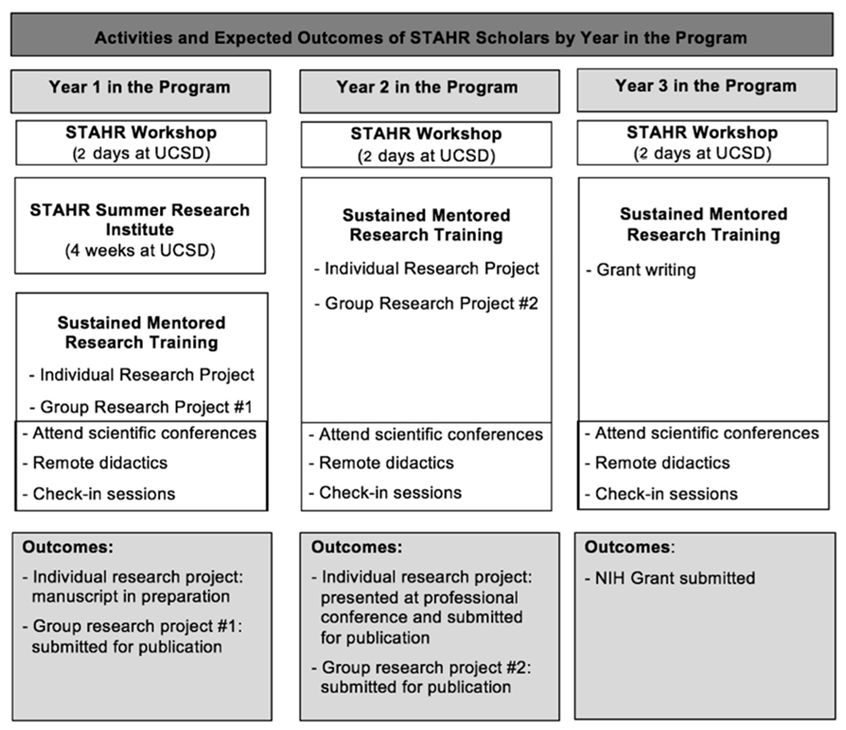Program Overview
STAHR is a research training program where scholars selected nationally gain knowledge and skills for the development, implementation, and dissemination of HIV and aging mental health research. STAHR provides clinical and translational science training on aspects of positive (successful aging) and negative (depression, substance use, neurocognitive impairment) mental health outcomes in older HIV+ persons. The program targets clinical and translational post-doctoral fellows and junior faculty from across the country, with previous training in either aging or HIV research, but interest in gaining expertise in the intersection of these two factors. Four new scholars are selected every year. Each one has a primary mentor at her or his home institution and a co-mentor at UCSD. Together, they develop an Individual Development Plan with the scholar. Scholars also have access to a large multidisciplinary network of senior and junior faculty in HIV and aging research. All mentoring and research activities are geared toward the individual scholars with an understanding of their current workplaces and overall milieu. Selection is made without regard to race, sex, color, ethnicity, or other protected characteristics, in accordance with UC policy and Proposition 209.
The STAHR program consists of different components catered to the different cohort years. The scholars attend a 4-week summer research institute during their first year and an annual 3-day workshop. There is additional didactic training in publication strategies, grantsmanship, professional development, community engagement, ethics, biostatistics and bioinformatics. Distance learning includes online seminars in topics such as team science, funding mechanisms, and cultural competence, which augment face-to-face training. Other features include active involvement of community stakeholders, group projects, and research on training. There is a rigorous evaluation of the scholars' career progress both in short and long term, and of the mentoring relationship.
A two-day annual STAHR Workshop took place on July 17th and 18th, 2025.

